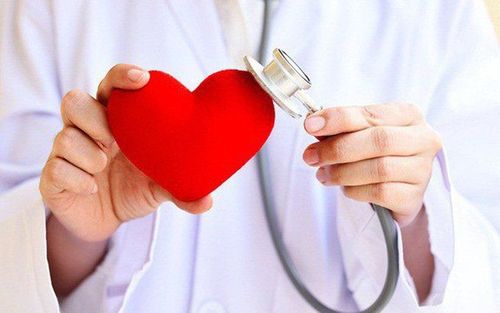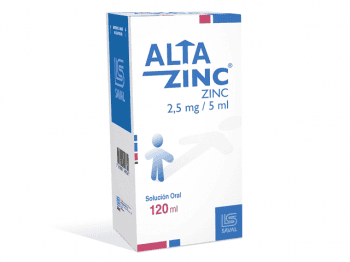This is an automatically translated article.
Posted by Master, Doctor La Thi Thuy - Interventional Cardiologist - Cardiovascular Center - Vinmec Central Park International General Hospital
Atrial fibrillation (RN) is an irregular heartbeat. Accordingly, people with atrial fibrillation have a 3 to 5 times higher risk of ischemic stroke and leave many other dangerous complications affecting health. Therefore, when there are signs of atrial fibrillation, stroke or cardiovascular diseases, patients should soon go to medical centers for examination and treatment.
1. What is atrial fibrillation?
Atrial fibrillation (RN) is an irregular heartbeat (arrhythmia). Arrhythmias are caused by disturbances in electrical conduction in the heart. RN is one of the most common arrhythmias 0.12-0.16% for people under 49 years old, 3.7-4.2% for 60-70 years old, increasing to 10-17% for people 80 years and older. As such, the risk of developing atrial fibrillation increases with age and with other risk factors such as diabetes, high blood pressure, and underlying heart disease. The main complications of atrial fibrillation are stroke and heart failure.
RN can affect the structures of the heart (atria and ventricles). The atria are the chambers of the heart that receive blood. The electrical conductions both help to efficiently push blood from the atria into the pumping chambers (ventricles). From the ventricles, blood is pumped to other organs in the body. In RN, the electrical signals conduction are fast, irregular, and disordered, and the heart does not pump blood efficiently.
RN can make the heart beat very fast, sometimes more than 150 beats per minute. A heart rate that is higher than normal is called tachycardia.
MORE: Atrial fibrillation and stroke risk
2. Complications of atrial fibrillation
One in 4 people: 1 in 4 people who have a stroke have atrial fibrillation over the age of 40. Untreated atrial fibrillation puts patients at higher risk of stroke and heart failure.
People with atrial fibrillation are 3 to 5 times more likely to have an ischemic stroke. During AF, the atria contract chaotically. Because the atria don't send blood the right way, blood pools in the atria and collects in grooved structures in the heart, which can form clots and potentially be pumped to the brain. An ischemic stroke occurs when blood flow to the brain is interrupted because a blood clot in a blood vessel in the brain is interrupted.
Stroke risk depends on several other risk factors including comorbid medical conditions: heart failure, high blood pressure or diabetes, being over 40 years old or having had a previous stroke or an ischemic attack. transient cerebral blood flow (TIA). Studies show that long-term use of the blood-thinning warfarin in patients with AF can reduce the risk of stroke by 70 to 80 percent.
RN can also lead to heart failure, which is a condition in which the heart cannot supply enough blood to meet the body's needs. RN's rapid, irregular heartbeat that results in an inefficient pumping of blood - especially if left unchecked - can weaken the heart.

Những người mắc bệnh rung nhĩ tăng nguy cơ bị đột quỵ
3. Types of atrial fibrillation
There are the following types of atrial fibrillation:
Paroxysmal AF: transient transient arrhythmias that come and go. The arrhythmias begin suddenly and then return to a normal rhythm on their own without medication, usually within 24 hours. Prolonged AF: arrhythmias lasting more than 7 days. Usually treatment is needed to get the heart rate back to normal. Permanent AF: arrhythmia that persists for more than one year despite medication and other treatments. Some people with permanent RN don't feel any symptoms. SEE ALSO: Stroke prevention in patients with atrial fibrillation
4. Causes of atrial fibrillation
Common causes include:
High blood pressure – the most common cause of atrial fibrillation Heart failure Coronary artery disease Cardiomyopathy Diabetes Diabetes Myocarditis or pericarditis Diseases that damage the valves Cardiac Hyperthyroidism Pulmonary embolism Atrial septal defect and other congenital heart diseases Heavy alcoholism Obesity Sleep apnea Age – atrial fibrillation is common in elderly patients In some cases the cause is often unknown atrial fibrillation. If RN occurs before age 60 without any structural heart disease, you may have idiopathic (or isolated) atrial fibrillation. Studies have identified several familial genes that influence the occurrence of idiopathic RN.
MORE: Why does atrial fibrillation increase the risk of stroke?

Một nguyên nhân gây rung nhĩ là do bệnh đái tháo đường
5. Symptoms of atrial fibrillation
Some people with RN may be fine and not know they have the disease until it is discovered during a general checkup and an electrocardiogram. Some have symptoms that will manifest to the patient in different ways. If you are experiencing any of the symptoms of RN, see your doctor:
Anxiety: very fast, irregular or palpitations of the heart Fatigue/no energy: shortness of breath or weakness with mild exertion Heaviness in the chest Lightheadedness or dizziness Sweating Anxiety Decreased concentration
6. Lifestyle changes to prevent atrial fibrillation
You can reduce your risk of developing other heart diseases and strokes by knowing and controlling your blood pressure, diabetes, etc. It's also important to have a healthy lifestyle:
No smoking Active and active lifestyle Eat a healthy balanced diet Consume less alcohol Reduce pressure Patients with atrial fibrillation are many times more likely to have a stroke. Therefore, the prevention of stroke in patients with atrial fibrillation is one of the issues of concern to protect the patient's health, while minimizing serious complications, even death. caused by stroke.
Cardiovascular Center - Vinmec International General Hospital owns a team of experts including Professors, PhDs, Specialist 2 doctors, Masters with experience and great reputation in the field of internal treatment. Department, surgery, interventional cardiac catheterization and application of advanced techniques in the diagnosis and treatment of cardiovascular diseases, especially early detection of stroke risk in patients with atrial fibrillation. In particular, the Center has modern equipment, on par with the most prestigious hospitals in the world, so customers can completely trust to choose Vinmec as the address for examination and treatment.
Please dial HOTLINE for more information or register for an appointment HERE. Download MyVinmec app to make appointments faster and to manage your bookings easily.













